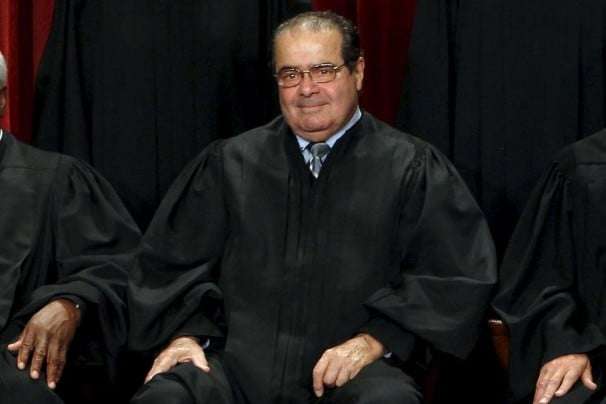The Volokh Conspiracy
Mostly law professors | Sometimes contrarian | Often libertarian | Always independent
Justice Scalia's death and the case for Supreme Court term limits
https://www.washingtonpost.com/video/national/remembering-supreme-court-justice-antonin-scalia/2016/02/13/522092f2-d2c6-11e5-90d3-34c2c42653ac_video.html
Justice Antonin Scalia's unexpected death has led to a remarkable situation. With slightly less than a year left in the Obama Presidency, a Supreme Court vacancy has come up that if filled now would change the basic orientation of the Supreme Court. Senate Republicans will try to keep that spot from being filled so that the next President - perhaps a Republican - can fill it. Meanwhile, President Obama will try to pressure the Senate to confirm a nominee this year.
At one level, the clash between the two branches isn't surprising. The Constitution requires the President and the Senate to agree on Supreme Court nominees. When the President and the Senate are deeply at odds, that is bound to be difficult.
But note something exceedingly weird about all of this: The direction of the Supreme Court is in play because of the health of a single man who was named to the Supreme Court thirty years ago, in 1986. That's a long time ago. If Justice Scalia had been in better health and lived longer, the Court would have retained its 5-4 conservative majority through this Term and into the future. On the other hand, if Scalia had been in worse health and had to retire sometime in the last few years, the Court likely would have already shifted to a 5-4 liberal majority.
What a strange system. It's often said that elections have consequences. But thanks to life tenure, elections don't have nearly as much consequence as they should have on the Supreme Court. A President might have zero vacancies to fill or may have many. For example, during the four-year Presidency of Jimmy Carter, no Justice retired. Carter never made a Supreme Court nomination. On the other hand, in the four-year window from 1937 to 1941, seven Justices died or elected to step down. President Franklin Delano Roosevelt and the Senate of that era quickly filled all seven spots.
http://www.washingtonpost.com/video/politics/after-scalias-death-the-political-battle-ahead-for-the-supreme-court/2016/02/15/3ea77a80-d436-11e5-a65b-587e721fb231_video.html
If we all agree that the ideological orientation of the Supreme Court matters - which, for better or worse, undeniably has been in case in our collective memory - then I can't see why that orientation should depend on how long a handful of people in their 70s and 80s can continue to serve. It would make much more sense to tie that orientation to the elected branches in some predictable and democratically accountable way.
That's why I agree with those who favor term limits for Supreme Court Justices.
Imagine each Justice was appointed to an 18-year term instead for life. With nine Justices, you would have a vacancy every two years. Every Presidential election would mean two vacancies at stake. A new President taking office in January would know that the first vacancy would come up a few months later in July, when the Supreme Court finished the work of its annual term. The second vacancy would come exactly two years later. Justices from previous times would cycle off the Court at predictable times, and they would be replaced by new Justices reflecting the current President and Senate. The ideological makeup of the Supreme Court as a whole would tend to reflect the President and the Senate at two-year intervals going back over the previous 18 years.
For the Supreme Court, elections would really have consequences. It would make a lot more sense than the system we have now.
The idea of term limits for Justices isn't new. Many have proposed the idea before me. Polling suggests it's popular, too. A 2015 Reuters/Ipsos poll asked respondents to pick between 10-year Supreme Court terms and life tenure. Among the respondents, 66% favored 10-year terms and only 17% supported life tenure.
The change would be hard to make because it would require a constitutional amendment. But I think the effort would be worth it. As you endure the coming showdown between the President and the Senate over the Scalia vacancy during the next few months, remember that it was avoidable. The problem is life tenure, and the answer is term limits for Supreme Court justices.



Show Comments (0)